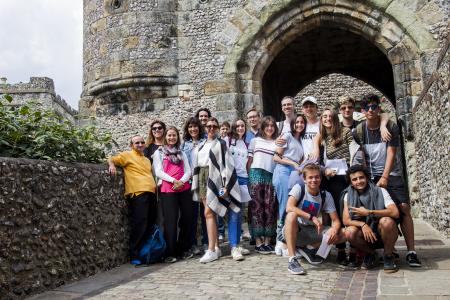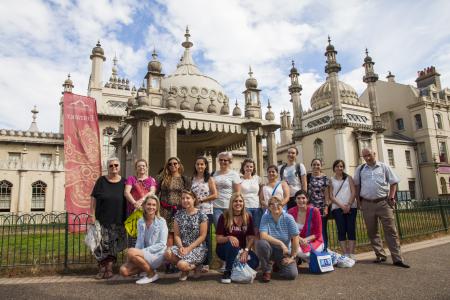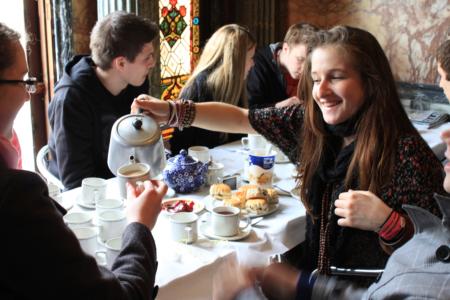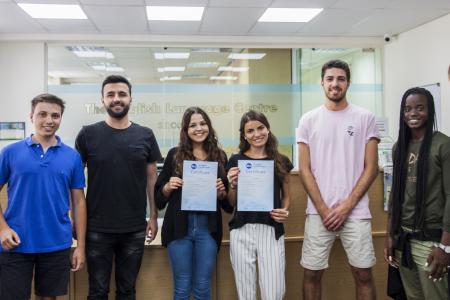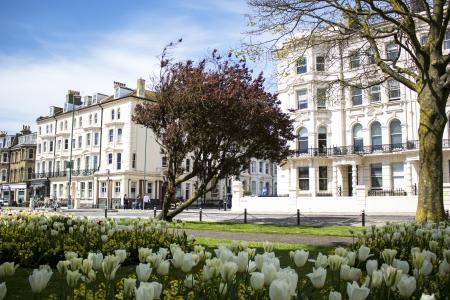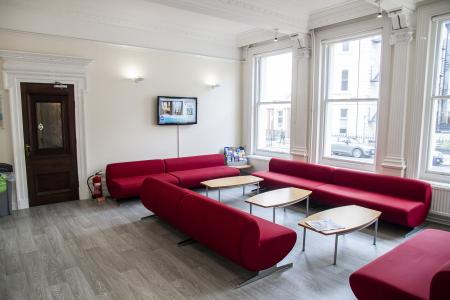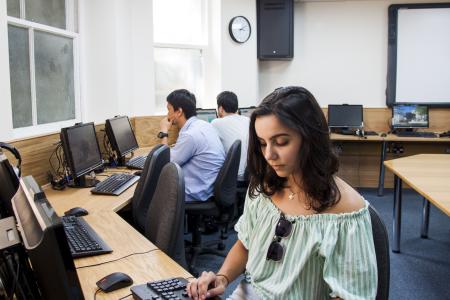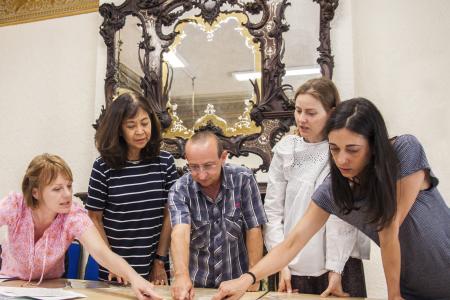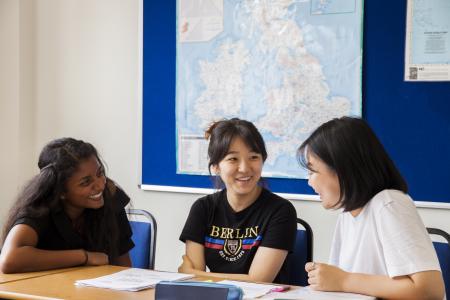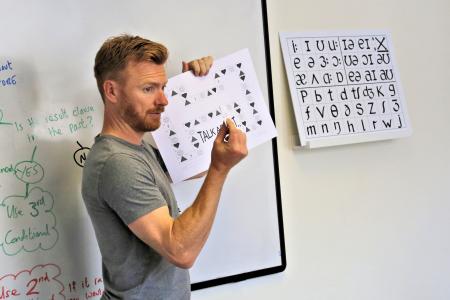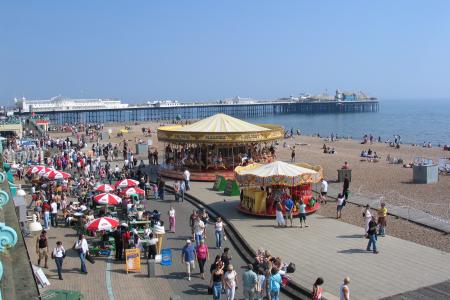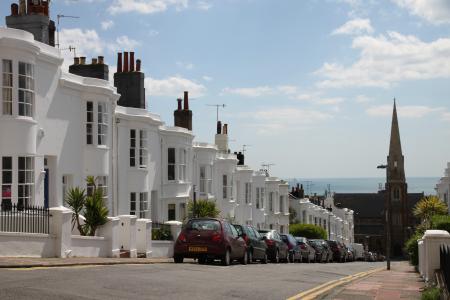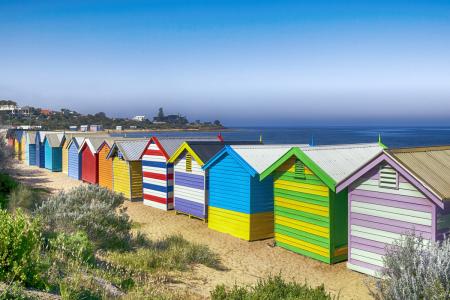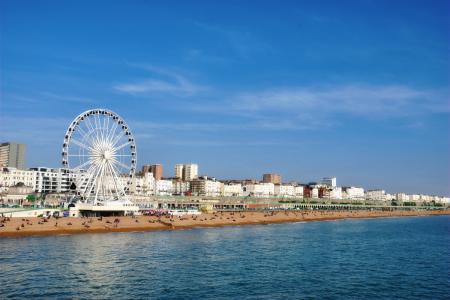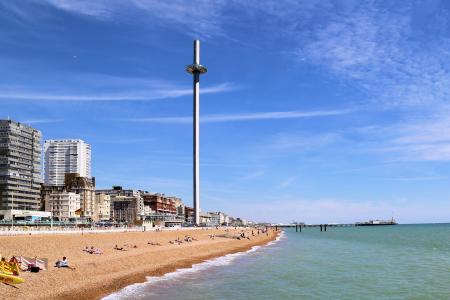COURSE DESCRIPTION:
The CLIL course is designed for all teachers involved in the teaching and learning of English through the use of the target language to teach other subjects across the curriculum/bilingual education. It combines practical methodology with opportunities to develop your fluency and understanding of the English language.
COURSE OBJECTIVES:
This very practical course will:
- Raise awareness of the key principles of CLIL
- Practice materials development and evaluation
- Discuss the testing and assessment of language and content
- Provide opportunities for language development for both teachers
- Present teaching ideas and practical activities for skills development
METHODOLOGY:
Input will be provided in a variety of ways (including seminars, practical workshops, trainer summaries and demonstrations) that take account of the course participants’ different learning preferences and styles. Participants will be encouraged to share their own ideas and experience, and develop networks with participants from other countries. There will be opportunities throughout the course to develop participants’ English language skills and to exploit the local context by collecting relevant authentic materials, making contact with native speakers and taking part in the school’s social and cultural programme, and outings.
PREPARATION:
A preparation pack is sent to participants before the course starts. Before the start of the course, participants should complete a pre-course questionnaire which will enable the course leaders to focus specifically on the exact needs of the participants.
FOLLOW UP:
Participants will complete a study journal during their stay to reflect on the new ideas they have experienced and on how they will incorporate them into their teaching. They also develop a classroom project. Follow up support is available via an alumni email group and participants will be encouraged to report on their progress. A course VLE will be set up for participants to collaborate and share online.
OUTCOMES:
- Improved personal English language skills
- Improved confidence in class
- Deeper sensitivity to cultural diversity
- Knowledge of other European systems of education
- Strategies, skills and activities of teaching
- Better knowledge of Erasmus+ potential for your own and others’ professional development
- Enhanced classroom methodological practice
- Improving students’ motivation
- Interpersonal skills and teamwork
- Better awareness of learning needs, difficulties and behaviour
SAMPLE PROGRAMME:
1) Monday
- Welcome to school, briefing and orientation. Introduction to course
- Your teaching context
- Warmers, fillers and team builders
2) Tuesday
- Evidence-based teaching and CLIL (1)
- Evidence-based teaching and CLIL (2)
- How do I know when I’m practicing CLIL? - The 4 ‘Cs’ and other key concepts
- Evening: Welcome drink
3) Wednesday
- My teaching puzzles: cooperative development
- Demo lesson: Introducing scaffolding, Reflection and planning
- Visual representations and graphic organisers
4) Thursday
- Cross-curricular teaching
- Cognitive Skills: HOTS, LOTS; SOLO
- Developing tasks for video
5) Friday
- Task-based learning in the CLIL context
- Demo lesson 2: Doing experiments – visit the beach
- Materials analysis and resources raid
SATURDAY AND SUNDAY - Free Days. Weekend excursions available with additional fees!
6) Monday
- Assessment and the role of the CEFR in CLIL
- Dealing with subject language and vocabulary development
- Teaching with new technologies
7) Tuesday
- Scaffolding language: Using writing and speaking frames
- Learner Styles: Whole brain learning
- Task design: Elements to consider, Working with texts
8) Wednesday
- Materials development and adaptation
- Brain friendly learning – The challenge of cognition
- Project preparation
9) Thursday
- Project sharing
- Feedback and correction – learning in your control
- Games, warmers and fillers, Activating learners
10 Friday
- Feedback
- Exhibition, rounding off and certificate ceremony
- Networking: farewell afternoon tea
* The minimum number required for the course is four students. In the event that we receive fewer than four students, please be assured that we will not cancel your booking. Instead, we will give you 20 lessons per week of General English in the morning with 10 lessons in the afternoon focussing on language teaching methodology either in a One-to-One, Two-to-One or Three-to-One class, as appropriate.
Przykładowe zajęcia dodatkowe:

bilard *, bowling *, horse riding *, tennis *, volleyball, water sports *, piłka nożna

cinema afternoon/evening *, city tour/walk, conversation practice, film evenings, football matches *, guided museum tours *, international evenings, museum visits *, orientation tour, pub and restaurant evenings, theatre or cinema visit *

Seven Sisters *, Arundel *, Stonehenge *, Canterbury *, London *, Oxford *, Stratford Upon Avon *, Bath *, Lewes Castles *, Warner Bros Studios *
* zajęcia dodatkowo płatne
Akredytacje





